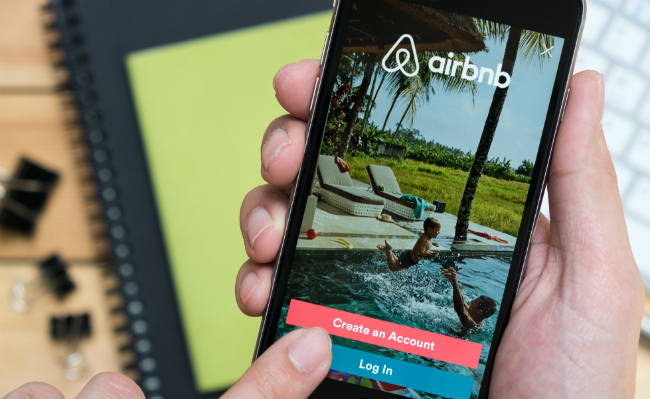
Last March, Gregory Selden of Richmond, Va. was just looking for a place to stay during a weekend excursion to Philadelphia. Like many of us, he decided to go the Airbnb route — unfortunately, the owner of a place he really wanted told him it was unavailable. Selden was initially going to leave it at that, but then he got curious and ultimately discovered the reason the place was “unavailable” was because the owner apparently wasn’t a big fan of black people.
After Selden noticed the dates he had been denied were still marked as “available,” his curiosity led him to create two fake profile accounts where he posed as white men. He then put in a request for the Airbnb. Can you guess what happened next? Racism happened.
#AirbnbWhileBlack made a fake profile as a white guy and was accepted immediately. pic.twitter.com/miUWG3OvQV
— G (@_GSelden) May 4, 2016
After a somewhat terse exchange in which Selden let the host know he was aware he had been denied because he was black (and contacted Airbnb about the issue), the host denied any wrongdoing and came back with “it’s a disappointment people like you always victimize yourselves on the basis of skin color.” Ugh.
This isn’t the first time we’ve seen something like this — heck, it isn’t the first time we’ve seen something like this even in the past few days. A Harvard Business School study from 2014 that gained traction earlier this week found that Airbnb customers with stereotypically black names (like “Jamal” and “Tanisha”) were 16 percent less likely to get reservations than customers with stereotypically white names (“Meredith” and “Todd”). This discrimination existed across the bounds of host price range, neighborhood racial makeup, and new vs. experienced hosts. It was universal.
The interesting thing is, this sort of discrimination might actually be legal (or Airbnb might be insulated from being accountable by the very nature of their business). In a similar issue, Uber recently settled a lawsuit with the National Federation of the Blind to the tune of $225 million. Uber drivers were accused of failing to pick up blind passengers with guide dogs, and their argument in the case was that it did not provide transportation services, but instead merely signed contracts with drivers who provided the services. After the Obama administration sided with the plaintiffs, however, the company caved — not only agreeing to shell out a huge chunk of change, but to also publishing an animal service policy.
What that settlement doesn’t settle (we’re so sorry) is the actual particulars of the case. Because it was a settlement rather than a judgment, the question as to whether a company like Uber or Airbnb — companies that say they facilitate transactions between private citizens — can be held liable for discrimination based on disability, color, gender, or any other protected class, is still on the table. At the same time, Airbnb hosts themselves can’t be held liable because business conducted on sharing economy sites falls under the heading of private transactions. In such cases, discrimination isn’t prohibited — it’s legal in America for you, a private citizen, to refuse to sell someone your car because you don’t like that they’re black or gay, for instance.
Nevertheless, it’s clearly not a good look for the company, which is why they issued the following statement to Mashable after news of the study broke:
“We are committed to making Airbnb one of the most open, trusted, diverse, and transparent communities in the world. We recognize that bias and discrimination present significant challenges, and we are taking steps to address them,” Airbnb’s Head of Diversity and Belonging David King told Mashable in an email. “We welcome the opportunity to work with anyone that can help us reduce potential discrimination in the Airbnb community.”
Well, that sounds very nice! If only we had an example that might test whether Airbnb was serious about a commitment to diversity…
After looking into this particular case (and never getting back to Selden himself), Airbnb made the claim the whole thing was just one big misunderstanding. See, Selden originally asked for one night as himself, and then he asked for two on the alternate white guy profiles. Airbnb’s hosts, meanwhile, frequently only allow multi-night stays for “a variety of reasons.” See, it’s totally fine! No racism here!
…Except, the story twists again: Selden has screenshots of requests both under his own name and the assumed ones, and they all say the same dates: March 13-14. Which means Airbnb has some explaining to do and big questions to answer — because the sharing economy seems cool on the surface, but not if it marginalizes people based on race, gender, sexual orientation, etc. It’s something Airbnb is going to have to deal with, and not just from a PR standpoint.






